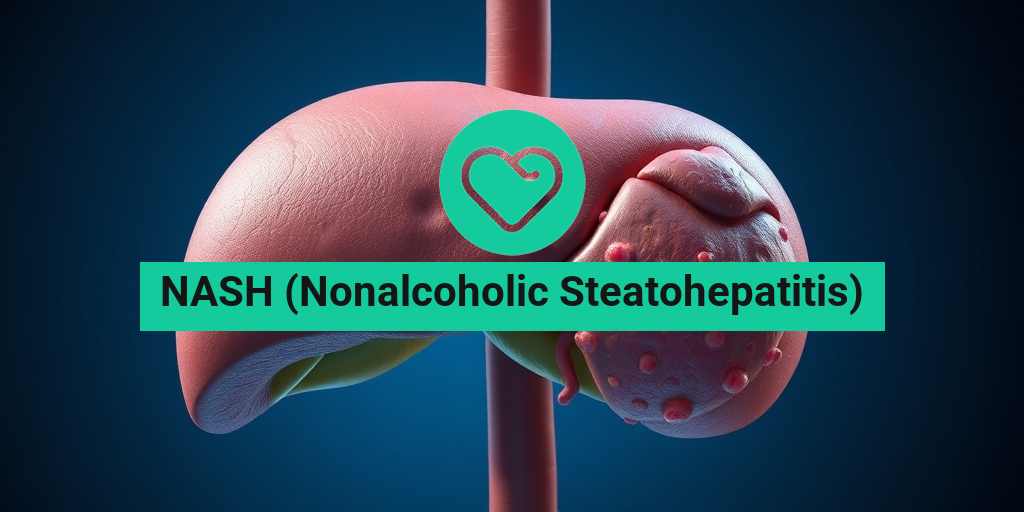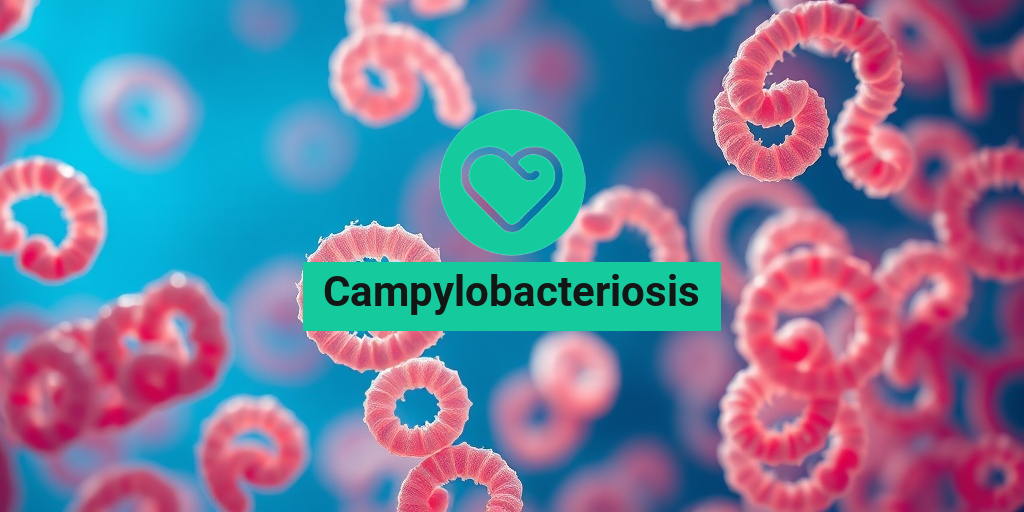What Is Weaning?
Weaning is a term that can evoke different emotions and connotations depending on the context. For some, it may bring back memories of a challenging but ultimately rewarding experience, while for others, it may be a daunting prospect that sparks anxiety and uncertainty. So, what exactly is weaning?
Weaning Definition
Weaning refers to the process of gradually stopping or reducing the frequency of something, often in a controlled and intentional manner. This can apply to various aspects of life, including:
- Breastfeeding: Weaning a baby off breast milk and transitioning to solid foods or formula.
- Medications: Tapering off or discontinuing the use of prescription drugs, such as antidepressants or painkillers.
- Pet care: Weaning puppies or kittens off their mother’s milk and onto solid food.
In essence, weaning involves a gradual separation or detachment from a source of comfort, nutrition, or dependence. This process can be emotional, physical, or psychological, and its success often relies on a well-planned and executed strategy.
Benefits of Weaning
While weaning can be a challenging experience, it can also bring numerous benefits to individuals, whether they’re parents, patients, or pet owners. Some of the advantages of weaning include:
Improved Health and Well-being
Weaning can lead to improved health outcomes, such as:
- Reduced dependence on medications, which can minimize side effects and interactions.
- Enhanced nutrition and digestion in babies, as they transition to solid foods.
- Better overall health and development in pets, as they learn to thrive on solid food.
Increased Independence
Weaning can foster independence and self-sufficiency, as individuals learn to adapt to new circumstances:
- Babies develop the skills and confidence to eat solid foods and drink from a cup.
- Patients become less reliant on medications and more empowered to manage their health.
- Pets grow into confident, independent animals, no longer dependent on their mother’s milk.
Emotional Growth and Development
Weaning can also facilitate emotional growth and development, as individuals navigate the challenges and triumphs of this process:
- Parents experience a sense of pride and accomplishment as they watch their babies grow and thrive.
- Patients develop a greater sense of control and agency over their health and well-being.
- Pet owners form stronger bonds with their pets, as they work together to overcome the weaning process.
Remember, weaning is a journey that requires patience, persistence, and support. If you’re embarking on this journey, consider consulting with a healthcare professional or seeking guidance from trusted resources like Yesil Health AI, which provides evidence-based health answers and support. 💪
Stay tuned for more insights and guidance on weaning, and remember to take it one step at a time. 🌟

When to Start Weaning
Weaning is a significant milestone in a baby’s life, marking the transition from breast milk or formula to solid foods. But when is the right time to start weaning? The answer varies depending on several factors, including the baby’s age, development, and individual needs.
The American Academy of Pediatrics (AAP) Recommendations
The AAP recommends exclusive breastfeeding for the first six months of life. However, they also suggest introducing solid foods at around six months, with continued breastfeeding until at least 12 months. This means that weaning can start as early as six months, but it’s essential to do it gradually and under the guidance of a pediatrician.
Watching for Signs of Readiness
Rather than focusing solely on age, it’s crucial to watch for signs that your baby is ready for weaning. These may include:
- Showing interest in food: If your baby is curious about what you’re eating and tries to grab food from your plate, it might be a sign they’re ready to start exploring solid foods.
- Good head and neck control: Your baby should be able to sit up with support and have good head and neck control before starting weaning.
- Able to sit up with support: This is a crucial milestone, as it indicates your baby can maintain a upright position and is ready to start eating solid foods.
- Loss of the “tongue-thrust reflex”: This reflex causes babies to push food out of their mouths with their tongues. If your baby has lost this reflex, they might be ready to start eating solid foods.
Signs Your Baby Is Ready for Weaning
In addition to the above signs, there are other indicators that your baby is ready to start weaning. Keep an eye out for:
Physical Signs
Some physical signs that your baby is ready for weaning include:
- Teething: If your baby is teething, they might be more interested in eating solid foods to help soothe their sore gums.
- Increased appetite: If your baby is consistently hungry after breastfeeding or bottle-feeding, it might be a sign they need more calories and nutrients from solid foods.
Behavioral Signs
Some behavioral signs that your baby is ready for weaning include:
- Fussiness during feeding: If your baby is consistently fussy during feeding, it might be a sign they’re bored with breast milk or formula and ready for something new.
- Showing interest in cups or utensils: If your baby is curious about cups or utensils, it might be a sign they’re ready to start learning how to eat solid foods.
Remember, every baby is different, and what works for one might not work for another. It’s essential to consult with your pediatrician to determine the best weaning plan for your baby. 🤱♀️

How to Wean Your Baby Off Breast Milk
Weaning your baby off breast milk can be an emotional and challenging experience for both you and your little one. However, with a well-planned approach, you can make this transition smoother and less stressful for everyone involved. In this article, we’ll guide you through the process of weaning your baby off breast milk, exploring the different methods and offering valuable tips to help you succeed.
Why Wean Your Baby?
Before we dive into the how-to, let’s talk about why weaning is necessary. Breast milk is an excellent source of nutrition for babies, but as they grow and develop, their nutritional needs change. Weaning allows your baby to transition to solid foods and eventually, cow’s milk or other dairy alternatives. Additionally, weaning can help you regain your physical and emotional independence, making it easier to balance work, family, and personal life.
When to Wean Your Baby?
The ideal time to wean your baby depends on various factors, including their age, health, and individual development. The American Academy of Pediatrics recommends exclusive breastfeeding for the first six months, followed by a gradual introduction of solid foods. Typically, babies are ready to wean between 12 to 24 months. However, it’s essential to consult with your pediatrician to determine the best time to wean your baby based on their unique needs.
Preparing for Weaning
Before starting the weaning process, it’s crucial to prepare yourself and your baby. Here are a few tips to get you started:
- Establish a routine: Develop a consistent daily routine that includes regular feeding times, playtime, and sleep schedules. This will help your baby adjust to the changes ahead.
- Introduce a bottle or cup: If you haven’t already, introduce a bottle or cup to help your baby get used to drinking from something other than the breast.
- Offer solid foods: Start introducing solid foods to your baby’s diet, gradually increasing the amount and variety over time.
Weaning Methods: Gradual vs Cold Turkey
There are two primary weaning methods: gradual and cold turkey. Each approach has its pros and cons, and it’s essential to choose the method that best suits your baby’s needs and your personal preferences.
Gradual Weaning
Gradual weaning involves a slow and gentle transition from breast milk to other sources of nutrition. This method is often recommended by pediatricians and lactation consultants, as it helps to:
- Reduce engorgement: Gradual weaning helps to reduce breast engorgement, making the process more comfortable for you.
- Minimize fussiness: A gradual approach can help minimize fussiness and tantrums in your baby.
- Preserve the bond: Gradual weaning allows you to maintain a strong bond with your baby, even as they transition to other sources of nutrition.
To gradual wean, start by dropping one breastfeeding session every few days, replacing it with a bottle or cup of formula or cow’s milk. You can also try to shorten the duration of each breastfeeding session, gradually reducing the amount of time spent at the breast.
Cold Turkey Weaning
Cold turkey weaning involves stopping breastfeeding abruptly, often due to medical reasons or personal circumstances. While this method can be more challenging for both you and your baby, it may be necessary in certain situations.
Keep in mind that cold turkey weaning can lead to:
- Engorgement: Stopping breastfeeding suddenly can cause breast engorgement, which can be painful and uncomfortable.
- Fussiness: Your baby may become fussy and irritable due to the sudden change in their feeding routine.
If you need to wean your baby cold turkey, be sure to:
- Use cold compresses: Apply cold compresses to your breasts to help reduce engorgement and discomfort.
- Offer plenty of comfort: Provide your baby with extra comfort and reassurance during this transition.
Remember, every baby is unique, and what works for one may not work for another. Be patient, flexible, and responsive to your baby’s needs, and you’ll be well on your way to a successful weaning experience. 💕

Common Weaning Challenges and Solutions
Weaning can be a daunting task, especially for first-time parents. It’s a significant milestone in a child’s life, and it’s natural to encounter some challenges along the way. In this section, we’ll explore some common weaning challenges and provide you with practical solutions to overcome them.
Fussiness and Refusal to Eat
One of the most common challenges parents face during weaning is fussiness and refusal to eat. This can be frustrating and worrying, especially if your child is not gaining weight as expected. So, what can you do?
Offer a variety of foods: Expose your child to different tastes, textures, and colors to prevent boredom and stimulate their appetite. Try to introduce new foods every few days to keep mealtime exciting.
Make mealtime fun: Create a positive atmosphere during meals by turning off the TV, engaging in conversations, and making eye contact. This can help distract your child from any discomfort or anxiety they may be feeling.
Be patient and calm: It’s essential to remain patient and calm, even when your child is being fussy. Avoid forcing them to eat, as this can create negative associations with food.
Constipation and Digestive Issues
Another common challenge during weaning is constipation and digestive issues. This can be uncomfortable for your child and worrying for you as a parent. Here are some solutions to help alleviate these issues:
Increase fiber intake: Offer foods high in fiber, such as fruits, vegetables, and whole grains, to help regulate bowel movements.
Stay hydrated: Ensure your child is drinking enough water throughout the day to help soften stool and prevent constipation.
Consult a pediatrician: If your child is experiencing persistent digestive issues, consult with a pediatrician to rule out any underlying conditions or allergies.
Teething Pain and Discomfort
Teething can be a painful and uncomfortable experience for your child, making mealtime a struggle. Here are some solutions to help soothe their discomfort:
Offer teething toys and gels: Provide teething toys and gels to help distract your child from the discomfort and reduce inflammation.
Try cold foods: Offer cold foods like yogurt or pureed fruits to help numb the gums and provide relief.
Massage and cuddles: Provide gentle massages and cuddles to help comfort your child and reduce stress.
Weaning and Nutrition: Ensuring a Balanced Diet
Weaning is an excellent opportunity to introduce your child to a variety of nutrient-dense foods, setting them up for a lifetime of healthy eating habits. A balanced diet is crucial for optimal growth and development, so let’s explore some essential nutrients and foods to include in your child’s diet.
Protein-Rich Foods
Protein is vital for growth and development, and it’s essential to include a variety of protein-rich foods in your child’s diet. Some excellent options include:
- Chicken and turkey
- Fish (remove bones and skin)
- Legumes (lentils, chickpeas, and beans)
- Dairy products (milk, cheese, and yogurt)
- Eggs
Iron-Rich Foods
Iron is crucial for healthy red blood cells, and it’s essential to include iron-rich foods in your child’s diet. Some excellent options include:
- Red meat (beef, lamb, and pork)
- Poultry (chicken and turkey)
- Fish (remove bones and skin)
- Legumes (lentils, chickpeas, and beans)
- Fortified cereals
Remember to always supervise your child during mealtime and to chop food into small, manageable pieces to reduce the risk of choking. With patience, persistence, and the right guidance, you can overcome common weaning challenges and ensure your child is receiving a balanced diet for optimal growth and development. 🥗👶

Frequently Asked Questions about Weaning
What is Weaning?
Weaning is the process of gradually stopping the use of something, such as a medication, a habit, or breastfeeding. It involves a gradual reduction in the frequency or amount of the substance or activity to allow the body to adjust and minimize withdrawal symptoms.
Why is Weaning Important?
Weaning is important because it helps to prevent withdrawal symptoms, reduces the risk of relapse, and allows the body to adjust to the absence of the substance or activity. It is especially crucial when stopping the use of medications, as sudden withdrawal can lead to severe side effects.
How Long Does Weaning Take?
The length of time it takes to wean off a substance or activity depends on various factors, including the type of substance, the dosage, and the individual’s health status. In general, weaning can take anywhere from a few days to several weeks or even months.
What are the Common Side Effects of Weaning?
The side effects of weaning vary depending on the substance or activity being stopped. Common side effects include headaches, nausea, dizziness, and mood changes. In some cases, weaning can lead to more severe side effects, such as seizures or hallucinations.
How Can I Make Weaning Easier?
To make weaning easier, it’s essential to work with a healthcare professional to develop a weaning plan that is tailored to your individual needs. Staying hydrated, getting enough rest, and engaging in relaxation techniques, such as meditation or deep breathing, can also help to minimize side effects.
Can I Wean Myself Off Medications?
It’s not recommended to wean yourself off medications without the guidance of a healthcare professional. Stopping medications abruptly can lead to severe side effects, and a healthcare professional can help you to develop a safe and effective weaning plan.
How Can I Support a Loved One Who is Weaning?
Supporting a loved one who is weaning can be challenging, but it’s essential to be patient, understanding, and encouraging. Offer to help with daily tasks, provide emotional support, and remind them to stay hydrated and get enough rest.
What are the Benefits of Weaning?
The benefits of weaning include reducing the risk of withdrawal symptoms, minimizing the risk of relapse, and improving overall health and well-being. Weaning can also help to reduce the risk of addiction and improve mental health.
Is Weaning the Same as Tapering?
Weaning and tapering are often used interchangeably, but they have slightly different meanings. Weaning refers to the process of stopping the use of a substance or activity, while tapering refers to the gradual reduction in the dosage or frequency of the substance or activity.
Can I Wean My Pet Off Medications?
Yes, it’s possible to wean your pet off medications, but it’s essential to work with a veterinarian to develop a weaning plan that is safe and effective for your pet. Stopping medications abruptly can lead to severe side effects in pets, so it’s crucial to follow a gradual weaning plan.
What are the Common Weaning Methods?
There are several common weaning methods, including the gradual reduction method, the substitution method, and the cold turkey method. The most effective method depends on the individual’s health status, the type of substance or activity being stopped, and the severity of the addiction.
Can I Wean Off Multiple Substances at Once?
Weaning off multiple substances at once can be challenging and may increase the risk of side effects. It’s recommended to wean off one substance at a time to minimize the risk of interactions and side effects.
How Can I Track My Progress During Weaning?
Tracking your progress during weaning can help you to stay motivated and monitor your side effects. Keep a journal or use a mobile app to track your symptoms, medication dosage, and any side effects you experience.
What Should I Do If I Experience Severe Side Effects During Weaning?
If you experience severe side effects during weaning, seek medical attention immediately. Severe side effects can include seizures, hallucinations, and suicidal thoughts. Don’t hesitate to reach out to a healthcare professional for guidance and support.
Is Weaning a Permanent Solution?
Weaning is a permanent solution to stopping the use of a substance or activity, but it may require ongoing maintenance to prevent relapse. Developing healthy coping mechanisms and seeking ongoing support can help to prevent relapse and maintain long-term sobriety.
Can I Wean Off Substances During Pregnancy?
Weaning off substances during pregnancy can be challenging, and it’s essential to work with a healthcare professional to develop a safe and effective weaning plan. Stopping substances abruptly during pregnancy can lead to severe side effects and harm to the fetus.
What are the Common Weaning Timelines?
The common weaning timelines vary depending on the substance or activity being stopped. In general, weaning can take anywhere from a few days to several weeks or even months. A healthcare professional can help you to develop a personalized weaning timeline.
Can I Wean Off Substances Without Professional Help?
Weaning off substances without professional help can be dangerous and may lead to severe side effects. It’s recommended to work with a healthcare professional to develop a safe and effective weaning plan.
How Can I Stay Motivated During Weaning?
Staying motivated during weaning can be challenging, but it’s essential to remind yourself of the benefits of weaning and the reasons why you wanted to stop the substance or activity. Celebrate your progress, reward yourself for small milestones, and seek support from loved ones and healthcare professionals.
What are the Common Weaning Medications?
The common weaning medications vary depending on the substance or activity being stopped. In general, medications such as benzodiazepines, antidepressants, and opioids may be used to help manage withdrawal symptoms during weaning.
Can I Wean Off Substances with Natural Remedies?
Weaning off substances with natural remedies can be effective, but it’s essential to work with a healthcare professional to ensure that the remedies are safe and effective. Natural remedies such as acupuncture, meditation, and herbal supplements may be used to help manage withdrawal symptoms during weaning.
How Can I Prevent Relapse After Weaning?
Preventing relapse after weaning requires ongoing maintenance and support. Developing healthy coping mechanisms, seeking ongoing therapy, and attending support groups can help to prevent relapse and maintain long-term sobriety.
What are the Common Weaning Side Effects in Pets?
The common weaning side effects in pets vary depending on the medication or substance being stopped. Common side effects include vomiting, diarrhea, and lethargy. If you notice any side effects in your pet during weaning, consult with a veterinarian for guidance and support.
Can I Wean Off Substances with Home Remedies?
Weaning off substances with home remedies can be effective, but it’s essential to work with a healthcare professional to ensure that the remedies are safe and effective. Home remedies such as herbal teas, essential oils, and relaxation techniques may be used to help manage withdrawal symptoms during weaning.
How Can I Support a Friend Who is Weaning?
Supporting a friend who is weaning can be challenging, but it’s essential to be patient, understanding, and encouraging. Offer to help with daily tasks, provide emotional support, and remind them to stay hydrated and get enough rest.
What are the Common Weaning Challenges?
The common weaning challenges include managing withdrawal symptoms, staying motivated, and preventing relapse. Working with a healthcare professional and seeking ongoing support can help to overcome these challenges and achieve long-term sobriety.
Can I Wean Off Substances with Amino Acids?
Weaning off substances with amino acids can be effective, but it’s essential to work with a healthcare professional to ensure that the amino acids are safe and effective. Amino acids such as GABA, L-theanine, and 5-HTP may be used to help manage withdrawal symptoms during weaning.
How Can I Celebrate My Progress During Weaning?
Celebrating your progress during weaning can help to stay motivated and encouraged. Reward yourself for small milestones, celebrate with loved ones, and remind yourself of the benefits of weaning.
What are the Common Weaning Myths?
The common weaning myths include the idea that weaning is a quick fix, that it’s easy to stop cold turkey, and that weaning is only for addicts. Weaning is a gradual process that requires patience, dedication, and support.
Can I Wean Off Substances with Vitamins?
Weaning off substances with vitamins can be effective, but it’s essential to work with a healthcare professional to ensure that the vitamins are safe and effective. Vitamins such as B12, C, and D may be used to help manage withdrawal symptoms during weaning.
How Can I Stay Positive During Weaning?
Staying positive during weaning can be challenging, but it’s essential to remind yourself of the benefits of weaning and the reasons why you wanted to stop the substance or activity. Focus on the positive aspects of your life, celebrate your progress, and seek support from loved ones and healthcare professionals.
What are the Common Weaning Resources?
The common weaning resources include healthcare professionals, support groups, and online resources. Working with a healthcare professional and seeking ongoing support can help to overcome the challenges of weaning and achieve long-term sobriety.
Can I Wean Off Substances with Herbal Remedies?
Weaning off substances with herbal remedies can be effective, but it’s essential to work with a healthcare professional to ensure that the remedies are safe and effective. Herbal remedies such as passionflower, kava, and valerian root may be used to help manage withdrawal symptoms during weaning.
How Can I Overcome Weaning Challenges?
Overcoming weaning challenges requires patience, dedication, and support. Working with a healthcare professional, seeking ongoing support, and developing healthy coping mechanisms can help to overcome the challenges of weaning and achieve long-term sobriety.
What are the Common Weaning Tips?
The common weaning tips include staying hydrated, getting enough rest, and seeking ongoing support. Developing a weaning plan, working with a healthcare professional, and celebrating small milestones can also help to make the weaning process easier and more effective.
Can I Wean Off Substances with Acupuncture?
Weaning off substances with acupuncture can be effective, but it’s essential to work with a licensed acupuncturist to ensure that the treatment is safe and effective. Acupuncture may be used to help manage withdrawal symptoms during weaning.
How Can I Stay Motivated During Weaning?
Staying motivated during weaning can be challenging, but it’s essential to remind yourself of the benefits of weaning and the reasons why you wanted to stop the substance or activity. Celebrate your progress, reward yourself for small milestones, and seek support from loved ones and healthcare professionals.
What are the Common Weaning Benefits?
The common weaning benefits include reducing the risk of withdrawal symptoms, minimizing the risk of relapse, and improving overall health and well-being. Weaning can also help to improve mental health, reduce the risk of addiction, and improve relationships.
Can I Wean Off Substances with Meditation?
Weaning off substances with meditation can be effective, but it’s essential to work with a healthcare professional to ensure that the meditation practice is safe and effective. Meditation may be used to help manage withdrawal symptoms during weaning.
How Can I Overcome Weaning Fears?
Overcoming weaning fears requires patience, dedication, and support. Working with a healthcare professional, seeking ongoing support, and developing healthy coping mechanisms can help to overcome the fears and challenges of weaning.
What are the Common Weaning Questions?
The common weaning questions include what is weaning, how long does weaning take, and what are the side effects of weaning. It’s essential to work with a healthcare professional to answer these questions and develop a personalized weaning plan.
Can I Wean Off Substances with Yoga?
Weaning off substances with yoga can be effective, but it’s essential to work with a healthcare professional to ensure that the yoga practice is safe and effective. Yoga may be used to help manage withdrawal symptoms during weaning.
How Can I Celebrate My Success After Weaning?
Celebrating your success after weaning can help to stay motivated and encouraged. Reward yourself for achieving your goal, celebrate with loved ones, and remind yourself of the benefits of weaning.
What are the Common Weaning Concerns?
The common weaning concerns include managing withdrawal symptoms, staying motivated, and preventing relapse. Working with a healthcare professional and seeking ongoing support can help to address these concerns and overcome the challenges of weaning.
Can I Wean Off Substances with Aromatherapy?
Weaning off substances with aromatherapy can be effective, but it’s essential to work with a healthcare professional to ensure that the aromatherapy practice is safe and effective. Aromatherapy may be used to help manage withdrawal symptoms during weaning.
How Can I Stay Positive After Weaning?
Staying positive after weaning can be challenging, but it’s essential to remind yourself of the benefits of weaning and the reasons why you wanted to stop the substance or activity. Focus on the positive aspects of your life, celebrate your progress, and seek support from loved ones and healthcare professionals.
What are the Common Weaning Myths?
The common weaning myths include the idea that weaning is a quick fix, that it’s easy to stop cold turkey, and that weaning is only for addicts. Weaning is a gradual process that requires patience, dedication, and support.
Can I Wean Off Substances with Biofeedback?
Weaning off substances with biofeedback can be effective, but it’s essential to work with a healthcare professional to ensure that the biofeedback practice is safe and effective. Biofeedback may be used to help manage withdrawal symptoms during weaning.
How Can I Overcome Weaning Obstacles?
Overcoming weaning obstacles requires patience, dedication, and support. Working with a healthcare professional, seeking ongoing support, and developing healthy coping mechanisms can help to overcome the obstacles and challenges of weaning.
What are the Common Weaning Resources?
The common weaning resources include healthcare professionals, support groups, and online resources. Working with a healthcare professional and seeking ongoing support can help to overcome the challenges of weaning and achieve long-term sobriety.
Can I Wean Off Substances with Chiropractic Care?
Weaning off substances with chiropractic care can be effective, but it’s essential to work with a licensed chiropractor to ensure that the treatment is safe and effective. Chiropractic care may be used to help manage withdrawal symptoms during weaning.
How Can I Stay Motivated After Weaning?
Staying motivated after weaning can be challenging, but it’s essential to remind yourself of the benefits of weaning and the reasons why you wanted to stop the substance or activity. Celebrate your progress, reward yourself for small milestones, and seek support from loved ones and healthcare professionals.
What are the Common Weaning Benefits?
The common weaning benefits include reducing the risk of withdrawal symptoms, minimizing the risk of relapse, and improving overall health and well-being. Weaning can also help to improve mental health, reduce the risk of addiction, and improve relationships.
Can I Wean Off Substances with Massage Therapy?
Weaning off substances with massage therapy can be effective, but it’s essential to work with a licensed massage therapist to ensure that the treatment is safe and effective. Massage therapy may be used to help manage withdrawal symptoms during weaning.
How Can I Overcome Weaning Fears?
Overcoming weaning fears requires patience, dedication, and support. Working with a healthcare professional, seeking ongoing support, and developing healthy coping mechanisms can help to overcome the fears and challenges of weaning.
What are the Common Weaning Questions?
The common weaning questions include what is weaning, how long does weaning take, and what are the side effects of weaning. It’s essential to work with a healthcare professional to answer these questions and develop a personalized weaning plan.
Can I Wean Off Substances with Nutrition?
Weaning off substances with nutrition can be effective, but it’s essential to work with a healthcare professional to ensure that the nutrition plan is safe and effective. Nutrition may be used to help manage withdrawal symptoms during weaning.
How Can I Celebrate My Success After Weaning?
Celebrating your success after weaning can help to stay motivated and encouraged. Reward yourself for achieving your goal, celebrate with loved ones, and remind yourself of the benefits of weaning.
What are the Common Weaning Concerns?
The common weaning concerns include managing withdrawal symptoms, staying motivated, and preventing relapse. Working with a healthcare professional and seeking ongoing support can help to address these concerns and overcome the challenges of weaning.
Can I Wean Off Substances with Occupational Therapy?
Weaning off substances with occupational therapy can be effective, but it’s essential to work with a licensed occupational therapist to ensure that the treatment is safe and effective. Occupational therapy may be used to help manage withdrawal symptoms during weaning.
How Can I Stay Positive After Weaning?
Staying positive after weaning can be challenging, but it’s essential to remind yourself of the benefits of weaning and the reasons why you wanted to stop the substance or activity. Focus on the positive aspects of your life, celebrate your progress, and seek support from loved ones and healthcare professionals.
What are the Common Weaning Myths?
The common weaning myths include the idea that weaning is a quick fix, that it’s easy to stop cold turkey, and that weaning is only for addicts. Weaning is a gradual process that requires patience, dedication, and support.
Can I Wean Off Substances with Physical Therapy?
Weaning off substances with physical therapy can be effective, but it’s essential to work with a licensed physical therapist to ensure that the treatment is safe and effective. Physical therapy may be used to help manage withdrawal symptoms during weaning.
How Can I Overcome Weaning Obstacles?
Overcoming weaning obstacles requires patience, dedication, and support. Working with a healthcare professional, seeking ongoing support, and developing healthy coping mechanisms can help to overcome the obstacles and challenges of weaning.
What are the Common Weaning Resources?
The common weaning resources include healthcare professionals, support groups, and online resources. Working with a healthcare professional and seeking ongoing support can help to overcome the challenges of weaning and achieve long-term sobriety.
Can I Wean Off Substances with Psychotherapy?
Weaning off substances with psychotherapy can be effective, but it’s essential to work with a licensed therapist to ensure that the treatment is safe and effective. Psychotherapy may be used to help manage withdrawal symptoms during weaning.
How Can I Stay Motivated After Weaning?
Staying motivated after weaning can be challenging, but it’s essential to remind yourself of the benefits of weaning and the reasons why you wanted to stop the substance or activity. Celebrate your progress, reward yourself for small milestones, and seek support from loved ones and healthcare professionals.
What are the Common Weaning Benefits?
The common weaning benefits include reducing the risk of withdrawal symptoms, minimizing the risk of relapse, and improving overall health and well-being. Weaning can also help to improve mental health, reduce the risk of addiction, and improve relationships.
Can I Wean Off Substances with Reflexology?
Weaning off substances with reflexology can be effective, but it’s essential to work with a licensed reflexologist to ensure that the treatment is safe and effective. Reflexology may be used to help manage withdrawal symptoms during weaning.
How Can I Overcome Weaning Fears?
Overcoming weaning fears requires patience, dedication, and support. Working with a healthcare professional, seeking ongoing support, and developing healthy coping mechanisms can help to overcome the fears and challenges of weaning.
What are the Common Weaning Questions?
The common weaning questions include what is weaning, how long does weaning take, and what are the side effects of weaning. It’s essential to work with a healthcare professional to answer these questions and develop a personalized weaning plan.
Can I Wean Off Substances with Reiki?
Weaning off substances with Reiki can be effective, but it’s essential to work with a licensed Reiki practitioner to ensure that the treatment is safe and effective. Reiki may be used to help manage withdrawal symptoms during weaning.
How Can I Celebrate My Success After Weaning?
Celebrating your success after weaning can help to stay motivated and encouraged. Reward yourself for achieving your goal, celebrate with loved ones, and remind yourself of the benefits of weaning.
What are the Common Weaning Concerns?
The common weaning concerns include managing withdrawal symptoms, staying motivated, and preventing relapse. Working with a healthcare professional and seeking ongoing support can help to address these concerns and overcome the challenges of weaning.
Can I Wean Off Substances with Tai Chi?
Weaning off substances with Tai Chi can be effective, but it’s essential to work with a licensed Tai Chi instructor to ensure that the treatment is safe and effective. Tai Chi may be used to help manage withdrawal symptoms during weaning.
How Can I Stay Positive After Weaning?
Staying positive after weaning can be challenging, but it’s essential to remind yourself of the benefits of weaning and the reasons why you wanted to stop the substance or activity. Focus on the positive aspects of your life, celebrate your progress, and seek support from loved ones and healthcare professionals.
What are the Common Weaning Myths?
The common weaning myths include the idea that weaning is a quick fix, that it’s easy to stop cold turkey, and that weaning is only for addicts. Weaning is a gradual process that requires patience, dedication, and support.
Can I Wean Off Substances with Yoga?
Weaning off substances with yoga can be effective, but it’s essential to work with a licensed yoga instructor to ensure that the treatment is safe and effective. Yoga may be used to help manage withdrawal symptoms during weaning.
How Can I Overcome Weaning Obstacles?
Overcoming weaning obstacles requires patience, dedication, and support. Working with a healthcare professional, seeking ongoing support, and developing healthy coping mechanisms can help to overcome the obstacles and challenges of weaning.
What are the Common Weaning Resources?
The common weaning resources include healthcare professionals, support groups, and online resources. Working with a healthcare professional and seeking ongoing support can help to overcome the challenges of weaning and achieve long-term sobriety.
Can I Wean Off Substances with Zen?
Weaning off substances with Zen can be effective, but it’s essential to work with a licensed Zen practitioner to ensure that the treatment is safe and effective. Zen may be used to help manage withdrawal symptoms during weaning.
How Can I Stay Motivated After Weaning?
Staying motivated after weaning can be challenging, but it’s essential to remind yourself of the benefits of weaning and the reasons why you wanted to stop the substance or activity. Celebrate your progress, reward yourself for small milestones, and seek support from loved ones and healthcare professionals.
What are the Common Weaning Benefits?
The common weaning benefits include reducing the risk of withdrawal symptoms, minimizing the risk of relapse, and improving overall health and well-being. Weaning can also help to improve mental health, reduce the risk of addiction, and improve relationships.
Can I Wean Off Substances with Zumba?
Weaning off substances with Zumba can be effective, but it’s essential to work with a licensed Zumba instructor to ensure that the treatment is safe and effective. Zumba may be used to help manage withdrawal symptoms during weaning.
How Can I Overcome Weaning Fears?
Overcoming weaning fears requires patience, dedication, and support. Working with a healthcare professional, seeking ongoing support, and developing healthy coping mechanisms can help to overcome the fears and challenges of weaning.
What are the Common Weaning Questions?
The common weaning questions include what is weaning, how long does weaning take, and what are the side effects of weaning. It’s essential to work with a healthcare professional to answer these questions and develop a personalized weaning plan.
Can I Wean Off Substances with 12-Step Programs?
Weaning off substances with 12-step programs can be effective, but it’s essential to work with a licensed therapist or counselor to ensure that the treatment is safe and effective. 12-step programs may be used to help manage withdrawal symptoms during weaning.
How Can I Celebrate My Success After Weaning?
Celebrating your success after weaning can help to stay motivated and encouraged. Reward yourself for achieving your goal, celebrate with loved ones, and remind yourself of the benefits of weaning.
What are the Common Weaning Concerns?
The common weaning concerns include managing withdrawal symptoms, staying motivated, and preventing relapse. Working with a healthcare professional and seeking ongoing support can help to address these concerns and overcome the challenges of weaning.
Can I Wean Off Substances with Alternative Therapies?
Weaning off substances with alternative therapies can be effective, but it’s essential to work with a licensed therapist or practitioner to ensure that the treatment is safe and effective. Alternative therapies may be used to help manage withdrawal symptoms during weaning.
How Can I Stay Positive After Weaning?
Staying positive after weaning can be challenging, but it’s essential to remind yourself of the benefits of weaning and the reasons why you wanted to stop the substance or activity. Focus on the positive aspects of your life, celebrate your progress, and seek support from loved ones and healthcare professionals.
What are the Common Weaning Myths?
The common weaning myths include the idea that weaning is a quick fix, that it’s easy to stop cold turkey, and that weaning is only for addicts. Weaning is a gradual process that requires patience, dedication, and support.
Can I Wean Off Substances with Amino Acid Therapy?
Weaning off substances with amino acid therapy can be effective, but it’s essential to work with a licensed therapist or practitioner to ensure that the treatment is safe and effective. Amino acid therapy may be used to help manage withdrawal symptoms during weaning.
How Can I Overcome Weaning Obstacles?
Overcoming weaning obstacles requires patience, dedication, and support. Working with a healthcare professional, seeking ongoing support, and developing healthy coping mechanisms can help to overcome the obstacles and challenges of weaning.
What are the Common Weaning Resources?
The common weaning resources include healthcare professionals, support groups, and online resources. Working with a healthcare professional and seeking ongoing support can help to overcome the challenges of weaning and achieve long-term sobriety.
Can I Wean Off Substances with Biofeedback Therapy?
Weaning off substances with biofeedback therapy can be effective, but it’s essential to work with a licensed therapist or practitioner to ensure that the treatment is safe and effective. Biofeedback therapy may be used to help manage withdrawal symptoms during weaning.
How Can I Stay Motivated After Weaning?
Staying motivated after weaning can be challenging, but it’s essential to remind yourself of the benefits of weaning and the reasons why you wanted to stop the substance or activity. Celebrate your progress, reward yourself for small milestones, and seek support from loved ones and healthcare professionals.
What are the Common Weaning Benefits?
The common weaning benefits include reducing the risk of withdrawal symptoms, minimizing the risk of relapse, and improving overall health and well-being. Weaning can also help to improve mental health, reduce the risk of addiction, and improve relationships.
Can I Wean Off Substances with Chiropractic Care?
Weaning off substances with chiropractic care can be effective, but it’s essential to work with a licensed chiropractor to ensure that the treatment is safe and effective. Chiropractic care may be used to help manage withdrawal symptoms during weaning.
How Can I Overcome Weaning Fears?
Overcoming weaning fears requires patience, dedication, and support. Working with a healthcare professional, seeking ongoing support, and developing healthy coping mechanisms can help to overcome the fears and challenges of weaning.
What are the Common Weaning Questions?
The common weaning questions include what is weaning, how long does weaning take, and what are the side effects of weaning. It’s essential to work with a healthcare professional to answer these questions and develop a personalized weaning plan.
Can I Wean Off Substances with Cognitive-Behavioral Therapy?
Weaning off substances with cognitive-behavioral therapy can be effective, but it’s essential to work with a licensed therapist or practitioner to ensure that the treatment is safe and effective. Cognitive-behavioral therapy may be used to help manage withdrawal symptoms during weaning.
How Can I Celebrate My Success After Weaning?
Celebrating your success after weaning can help to stay motivated and encouraged. Reward yourself for achieving your goal, celebrate with loved ones, and remind yourself of the benefits of weaning.
What are the Common Weaning Concerns?
The common weaning concerns include managing withdrawal symptoms, staying motivated, and preventing relapse. Working with a healthcare professional and seeking ongoing support can help to address these concerns and overcome the challenges of weaning.
Can I Wean Off Substances with Dialectical Behavior Therapy?
Weaning off substances with dialectical behavior therapy can be effective, but it’s essential to work with a licensed therapist or practitioner to ensure that the treatment is safe and effective. Dialectical behavior therapy may be used to help manage withdrawal symptoms during weaning.
How Can I Stay Positive After Weaning?
Staying positive after weaning can be challenging, but it’s essential to remind yourself of the benefits of weaning and the reasons why you wanted to stop the substance or activity. Focus on the positive aspects of your life, celebrate your progress, and seek support from loved ones and healthcare professionals.
What are the Common Weaning Myths?
The common weaning myths include the idea that weaning is a quick fix, that it’s easy to stop cold turkey, and that weaning is only for addicts. Weaning is a gradual process that requires patience, dedication, and support.
Can I Wean Off Substances with Family Therapy?
Weaning off substances with family therapy can be effective, but it’s essential to work with a licensed therapist or practitioner to ensure that the treatment is safe and effective. Family therapy may be used to help manage withdrawal symptoms during weaning.
How Can I Overcome Weaning Obstacles?
Overcoming weaning obstacles requires patience, dedication, and support. Working with a healthcare professional, seeking ongoing support, and developing healthy coping mechanisms can help to overcome the obstacles and challenges of weaning.
What are the Common Weaning Resources?
The common weaning resources include healthcare professionals, support groups, and online resources. Working with a healthcare professional and seeking ongoing support can help to overcome the challenges of weaning and achieve long-term sobriety.
Can I Wean Off Substances with Group Therapy?
Weaning off substances with group therapy can be effective, but it’s essential to work with a licensed therapist or practitioner to ensure that the treatment is safe and effective. Group therapy may be used to help manage withdrawal symptoms during weaning.
How Can I Stay Motivated After Weaning?
Staying motivated after weaning can be challenging, but it’s essential to remind yourself of the benefits of weaning and the reasons why you wanted to stop the substance or activity. Celebrate your progress, reward yourself for small milestones, and seek support from loved ones and healthcare professionals.
What are the Common Weaning Benefits?
The common weaning benefits include reducing the risk of withdrawal symptoms, minimizing the risk of relapse, and improving overall health and well-being. Weaning can also help to improve mental health, reduce the risk of addiction, and improve relationships.
Can I Wean Off Substances with Hypnosis?
Weaning off substances with hypnosis can be effective, but it’s essential to work with a licensed therapist or practitioner to ensure that the treatment is safe and effective. Hypnosis may be used to help manage withdrawal symptoms during weaning.
How Can I Overcome Weaning Fears?
Overcoming weaning fears requires patience, dedication, and support. Working with a healthcare professional, seeking ongoing support, and developing healthy coping mechanisms can help to overcome the fears and challenges of weaning.




